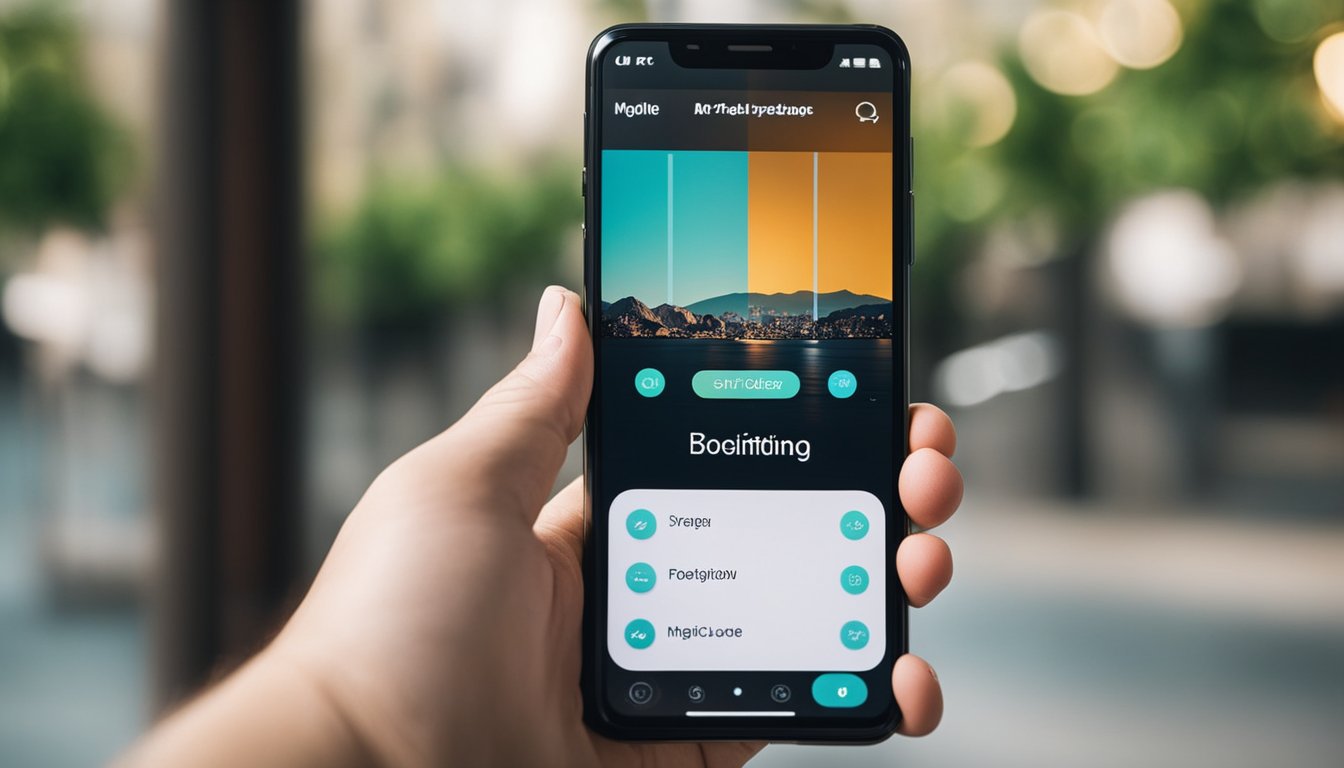
Most Popular Testing Tools for Mobile Apps A Comprehensive Guide
As the mobile app market continues to grow, ensuring that your app is functional and user-friendly is more important than ever. Mobile app testing is a crucial part of the development process, and using the right tools can make all the difference. In
As the mobile app market continues to grow, ensuring that your app is functional and user-friendly is more important than ever. Mobile app testing is a crucial part of the development process, and using the right tools can make all the difference. In this article, I will provide an overview of the most popular testing tools for mobile apps.

Mobile app testing involves executing a variety of tests on a mobile application to assess its functionality and performance. This includes testing for issues such as poor performance, loading problems, and unresponsive elements. With the right mobile app testing tools, developers can identify and fix these issues before releasing their app to the public.
There are many mobile app testing tools available on the market, each with its own strengths and weaknesses. In the following sections, I will provide an in-depth review of some of the most popular mobile app testing tools available today. By the end of this article, you will have a better understanding of which tools are best suited for your mobile app testing needs.
Key Takeaways
- Mobile app testing is crucial for ensuring that your app is functional and user-friendly.
- There are many mobile app testing tools available on the market, each with its own strengths and weaknesses.
- By understanding the most popular mobile app testing tools, developers can choose the best tools for their specific needs.
Understanding Mobile App Testing

Mobile app testing is a crucial part of the software development process. It involves testing the functionality, performance, and security of mobile applications to ensure that they perform as expected and meet the needs of users. There are several types of mobile app testing, and the testing process can be complex and challenging. In this section, I will discuss the importance of mobile app testing, the types of mobile app testing, the mobile app testing process, the challenges in mobile app testing, and the role of automation in mobile app testing.
Importance of Mobile App Testing
Mobile app testing is important because it helps ensure that mobile applications are reliable, secure, and user-friendly. Testing helps identify and fix issues before the application is released to the public, which can save time and money in the long run. Testing also helps ensure that applications are compatible with different devices, operating systems, and screen sizes, which is essential for providing a good user experience.
Types of Mobile App Testing
There are several types of mobile app testing, including functional testing, performance testing, security testing, load testing, and cross-browser testing. Functional testing involves testing the functionality of the application to ensure that it meets the requirements and specifications. Performance testing involves testing the performance of the application to ensure that it performs well under different conditions. Security testing involves testing the security of the application to ensure that it is secure and protected from potential threats. Load testing involves testing the application under heavy load to ensure that it can handle high levels of traffic. Cross-browser testing involves testing the application on different browsers and devices to ensure that it works well on all platforms.
Mobile App Testing Process
The mobile app testing process involves several stages, including planning, preparation, execution, and reporting. During the planning stage, the testing team identifies the testing requirements and creates a test plan. During the preparation stage, the team prepares the testing environment, creates test cases, and sets up the testing tools. During the execution stage, the team runs the tests and records the results. During the reporting stage, the team analyzes the results and creates a test report.
Challenges in Mobile App Testing
Mobile app testing can be challenging due to the wide range of devices, operating systems, and screen sizes that applications need to be compatible with. Testing can also be challenging due to the complexity of mobile applications and the need to test both the front-end and back-end of the application. Additionally, testing can be time-consuming and expensive, especially when testing on real devices.
Role of Automation in Mobile App Testing
Automation can play a significant role in mobile app testing, as it can help reduce the time and cost of testing. Automation can be used for both functional and performance testing, and it can help ensure that tests are repeatable and consistent. There are several automation testing tools available, including Appium, Selenium, Selendroid, Calabash, Ranorex, TestComplete, Kobiton, Espresso, Robotium, XCUITest, and UI Automator. These tools can help automate testing on real devices, emulators, and simulators, and they can help test applications on different operating systems and devices.
In conclusion, mobile app testing is an essential part of the software development process. It helps ensure that mobile applications are reliable, secure, and user-friendly, and it can save time and money in the long run. There are several types of mobile app testing, and the testing process can be complex and challenging. Automation can play a significant role in mobile app testing, and there are several automation testing tools available to help automate the testing process.
In-Depth Review of Popular Mobile App Testing Tools

When it comes to mobile app testing, there are a plethora of tools available in the market. In this section, I will provide an overview of some of the most popular mobile app testing tools. These tools are used for automated testing, manual testing, and continuous testing.
Overview of Appium
Appium is an open-source automation testing tool for testing mobile applications and supports testing native, hybrid, and mobile web applications built for iOS and Android platforms. It uses JSON wire protocol to interact with iOS and Android apps using Selenium WebDriver. Appium is compatible with many programming languages such as Java, JavaScript, Ruby, Python, C#, and PHP.
Insight into Selenium
Selenium is a popular open-source automation testing tool for web applications that can also be used for mobile app testing. It supports testing on both Android and iOS platforms using Appium. Selenium offers a range of features such as cross-browser testing, mobile testing, and test management. Selenium is compatible with many programming languages such as Java, C#, Python, Ruby, and JavaScript.
Features of Espresso
Espresso is a testing framework for Android apps that is developed by Google. It is designed to provide a fast and reliable way to test native Android apps. Espresso offers several features such as automatic synchronization of test actions with the app's UI thread, built-in assertion APIs, and support for both real devices and emulators.
Understanding Ranorex
Ranorex is a commercial automation testing tool that supports testing on both Android and iOS platforms. It offers a range of features such as test automation, test management, and reporting. Ranorex supports a variety of programming languages such as C#, VB.NET, and Python.
Exploring Katalon Studio
Katalon Studio is a free automation testing tool that supports testing on both Android and iOS platforms. It offers a range of features such as test automation, test management, and reporting. Katalon Studio supports a variety of programming languages such as Java, Groovy, and JavaScript.
In conclusion, these are some of the most popular mobile app testing tools available in the market. Each tool has its own set of features and capabilities, and choosing the right tool depends on the specific needs of the project. It is important to consider factors such as compatibility with programming languages, support for real devices and emulators, and ease of use when selecting a mobile app testing tool.
Conclusion

In conclusion, mobile app testing is an essential process to ensure the quality and user experience of mobile applications. With the increasing number of mobile app users, it has become crucial to use the right tools and techniques for mobile app testing.
In this article, we have discussed some of the best mobile testing tools available in 2023. These tools include both free and paid options, and they offer a wide range of features for mobile app testing, such as automation, performance testing, and user experience testing.
It is important to note that mobile app testing is not just about finding bugs and issues, but also about ensuring the scalability and performance of the application. Quality assurance is a critical aspect of mobile app development, and using the right tools can help developers achieve their goals.
Overall, selecting the right mobile testing tool depends on various factors such as the type of application, the target audience, and the budget. It is essential to choose a tool that meets your specific requirements and offers the necessary features to ensure the quality and usability of your mobile application.
Frequently Asked Questions

What are some effective mobile application testing strategies?
When it comes to mobile application testing, there are several strategies that can be effective. One of the most important is to test on real devices rather than relying solely on emulators. It's also important to test across multiple operating systems and versions to ensure compatibility. Additionally, incorporating automated testing into your strategy can save time and increase efficiency.
Which tools are commonly used for mobile app testing?
There are many tools available for mobile app testing, both free and paid. Some popular options include Appium, Calabash, Espresso, and XCUITest. Each tool has its own strengths and weaknesses, so it's important to choose the one that best suits your needs.
What is mobile automation testing?
Mobile automation testing involves using software tools to automate the testing of mobile applications. This can help save time and increase efficiency, as well as improve the accuracy of testing. Automation can be particularly useful for repetitive tasks, such as regression testing.
How can I test my mobile app for QA?
To test your mobile app for QA, it's important to develop a comprehensive testing strategy that includes both manual and automated testing. You should test on real devices, across multiple operating systems and versions, and incorporate both functional and non-functional testing. Additionally, it's important to test for usability, security, and performance.
Which cloud-based mobile testing tools are recommended?
There are several cloud-based mobile testing tools available, including AWS Device Farm, Firebase Test Lab, and Sauce Labs. Each tool has its own unique features and benefits, so it's important to choose the one that best fits your needs.
What are some free mobile app testing tools available?
There are several free mobile app testing tools available, including Appium, Calabash, and Robotium. These tools can be a great option for smaller teams or those on a tight budget, but it's important to keep in mind that they may not have all the features of their paid counterparts.




